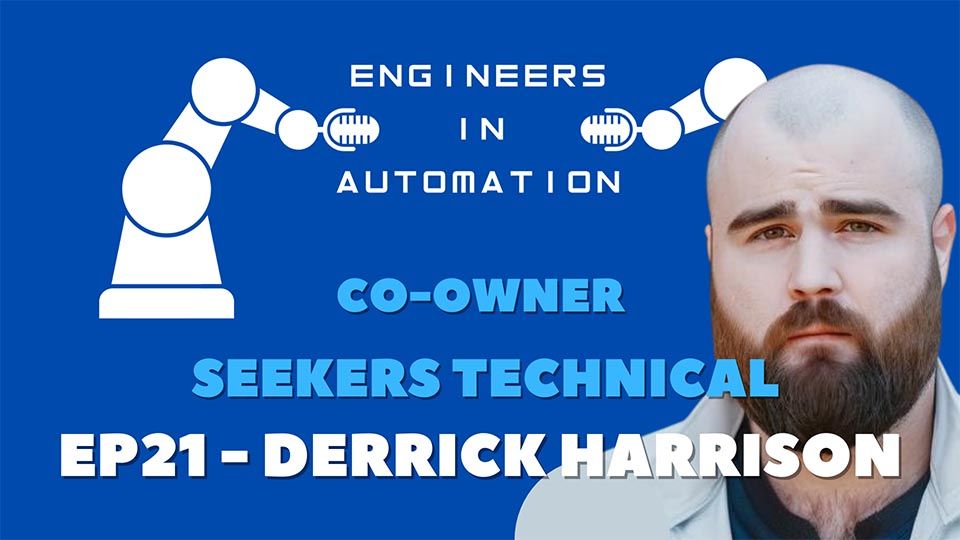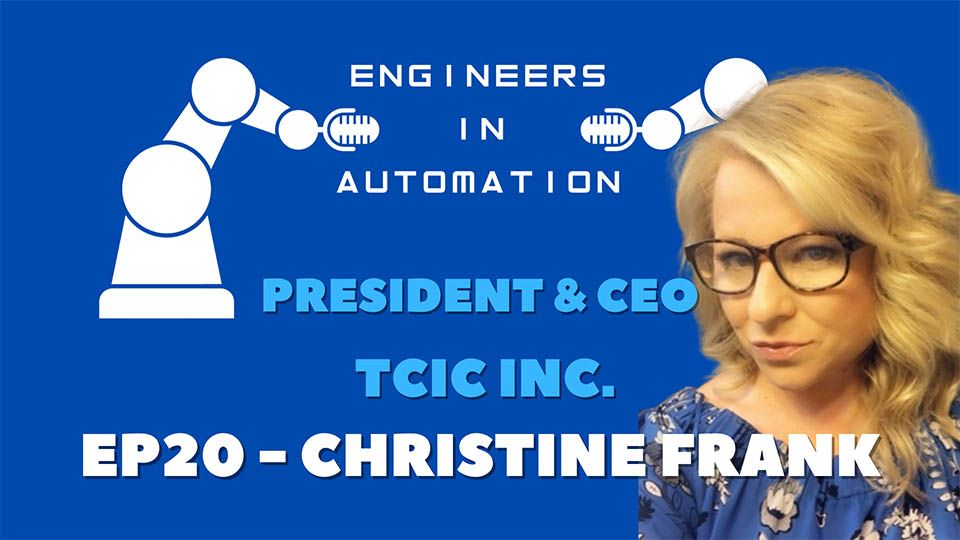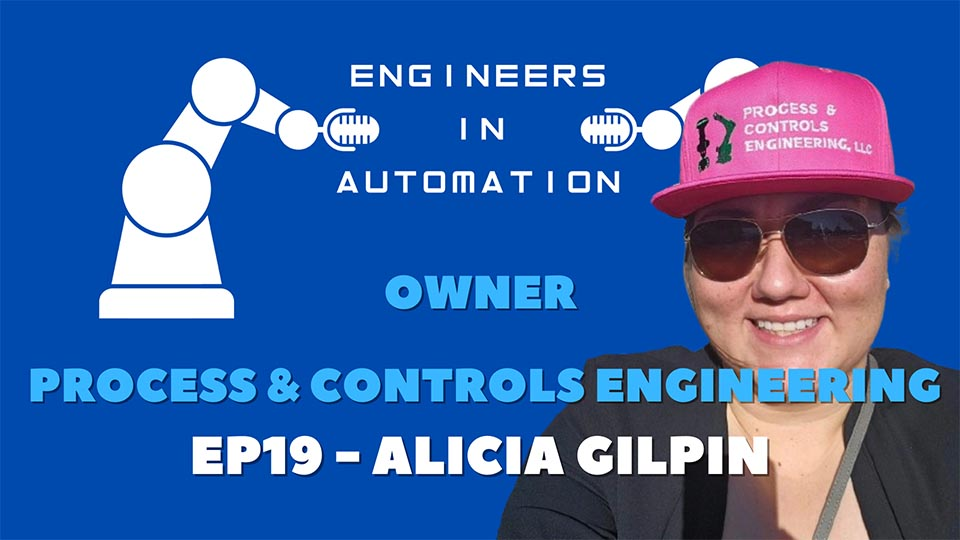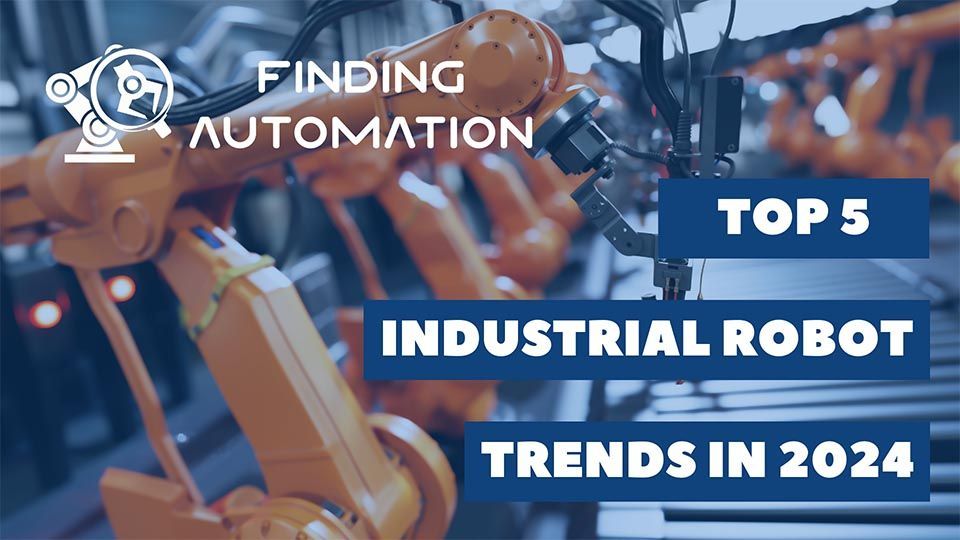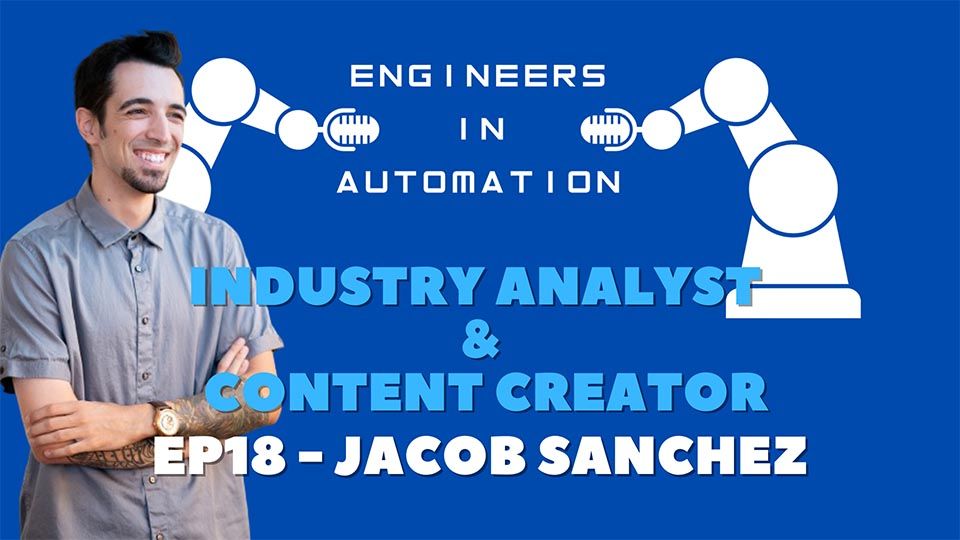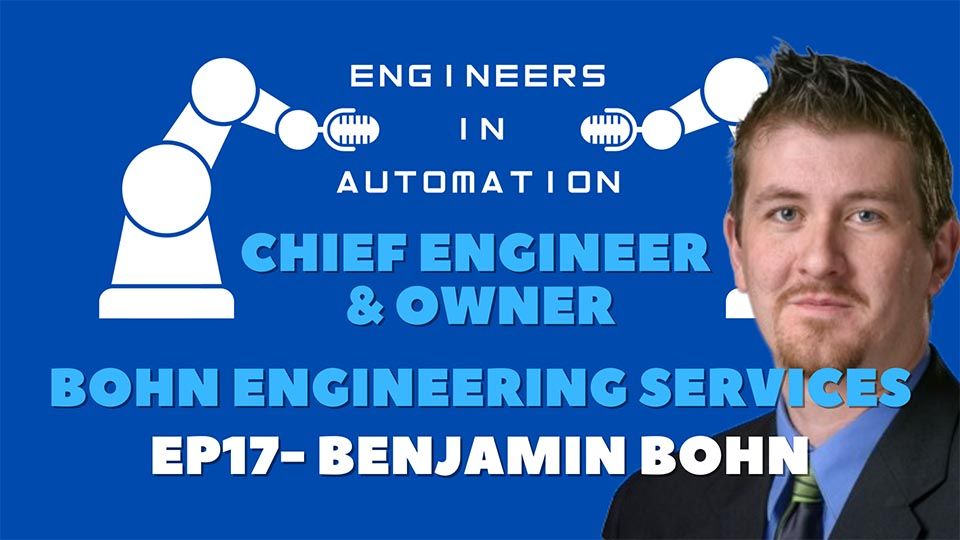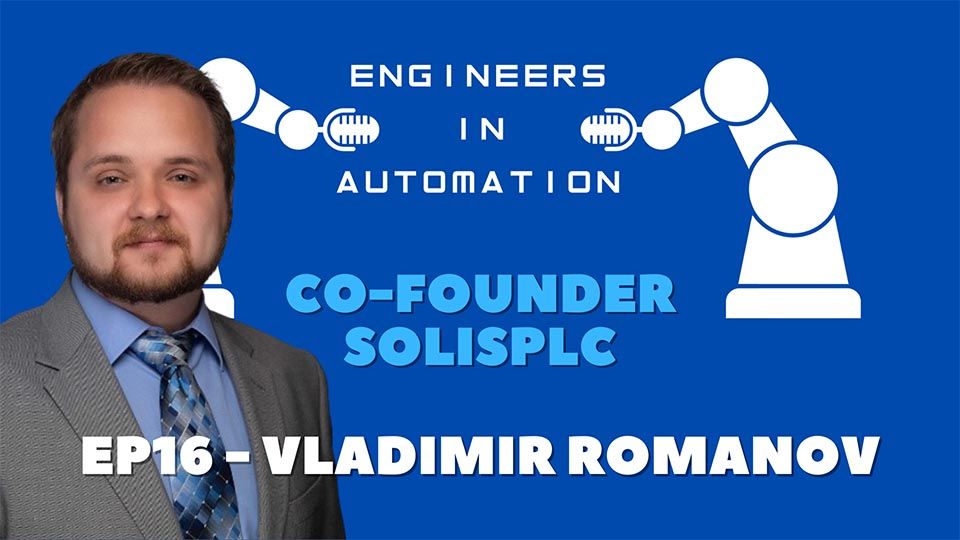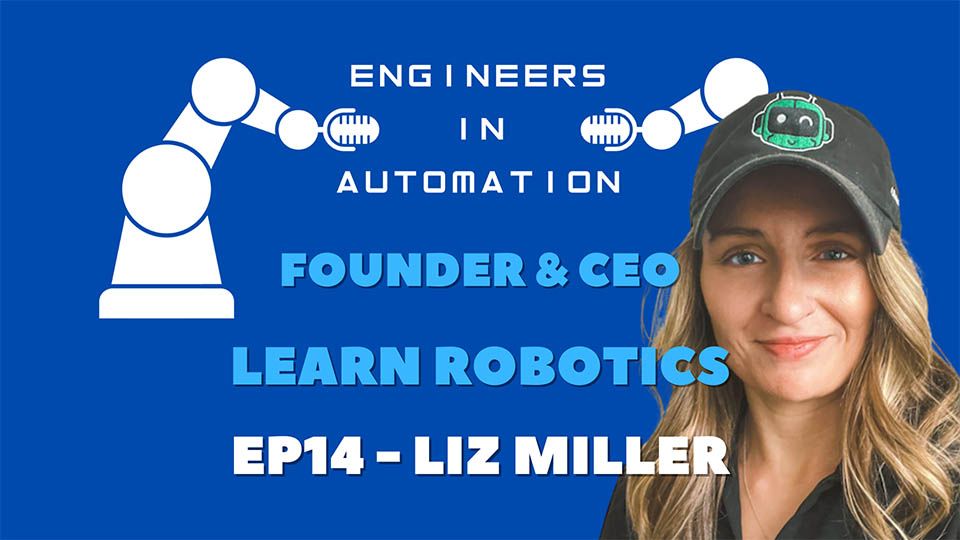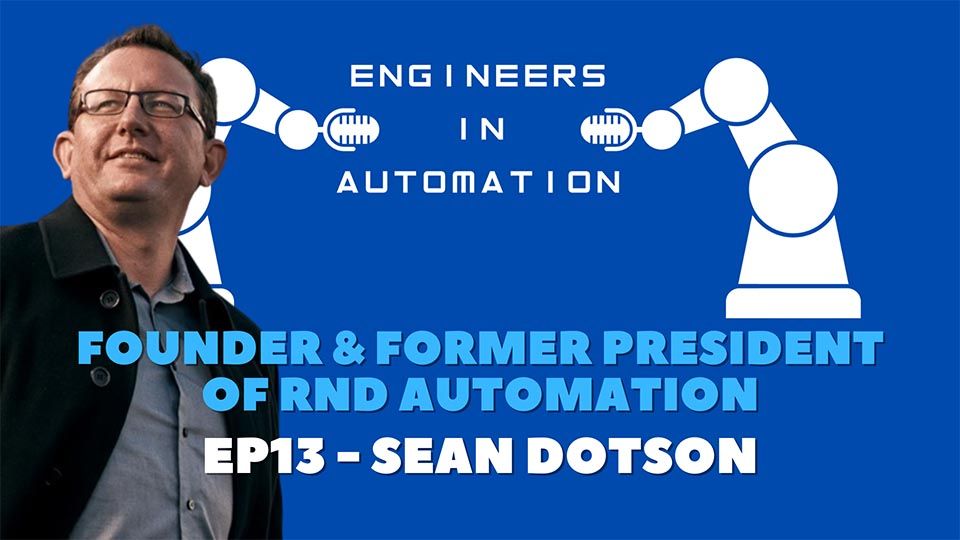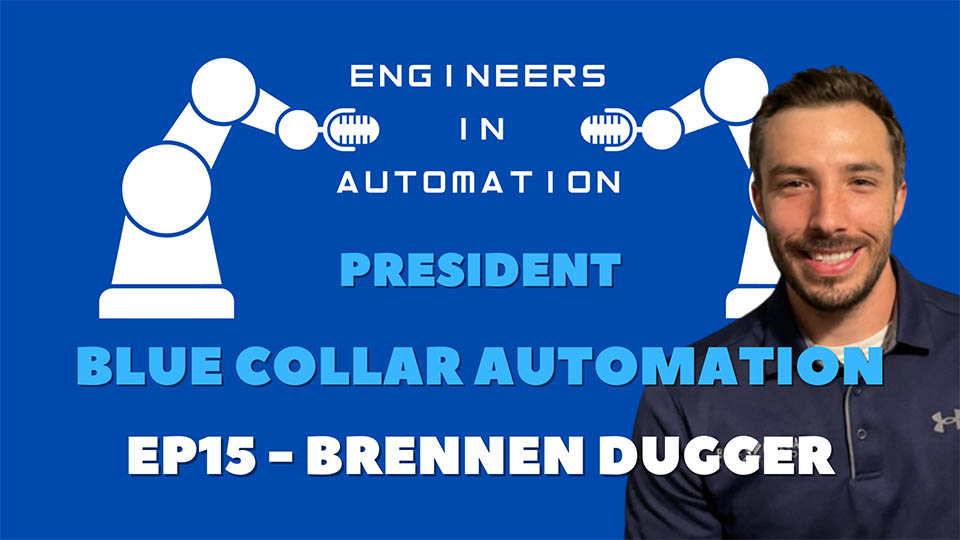Keegan Dillon – Host (KD): Hi, I’m Keegan, and I'm your host of
Engineers in Automation. On today's episode, we're going to talk with Stephen Gates. He's the founder of
myPLCtraining.com. We're going to talk about the benefits of online PLC training. We're going to talk about who can do the training courses, as well as how long the academy is. And then we're also going to talk and give some advice for people who are thinking about taking any online training classes. Now, let's go talk automation!
KD: All right, and welcome to today's show. Today, I've got Stephen Gates on the show with me. He's the founder of
myPLCtraining.com. Stephen, welcome to the show.
Stephen Gates – Guest (SG): Hey, thanks, Keegan. Good to be here with you.
KD: Yeah, of course, And can you give me just a little bit of background about yourself?
SG: Yeah, sure. So, again, my name is Stephen Gates, and I own and run
myPLCtraining.com. And the purpose of our businesses, we specialize in helping electricians, technicians, and engineers become confident PLC programmers so that they can advance their careers in industrial automation. And we do that without them needing to get any additional college degrees or try to figure out everything on their own with YouTube and the internet by themselves.
KD: Yeah, I really liked that. And then is your background in controls engineering, you obviously have to have some prior knowledge before starting this business.
SG: Yeah, so I worked about a decade as an electrical engineer doing a lot of PLC programming. So, I worked for a custom switchgear builder. So, we built custom panels with circuit breakers in them anywhere from 480 volts up to 15,000 volts. And it was for like emergency power backup systems, usually. So we did a lot of data centers and hospitals and some small town utility power plants. But we automated pretty much everything with PLCs. So that's where I got most of my experience.
KD: Okay. And then, you know, how did you kind of transition that experience into a business then into an online training course?
SG: Yeah, so one of the things that was cool, I noticed when I started working as an engineer, doing PLC programming and other related automation tasks, was that some of my coworkers, it was a smaller business, but some of the guys that were doing the same job as me, were not engineers, you know, they weren't, they wouldn't have the college degree, a bachelor's degree in engineering. And it was kind of became apparent to me that you don't need a degree for this, like, these are, I didn't, I mean, I took one class on PLC programming, in college, which most engineers don't even get to do that. So, I was blessed to be able to have that opportunity at my school. But learning PLC programming, automation stuff, 90% of it, I learned on the job.
So, I saw a real opportunity for people who are in the industry like electricians, maintenance technicians, maintenance supervisors, and anybody in that area to get into this field, and really, up-level their career. Not just in terms of pay, but, you know, it's obviously a lot less manual labor intensive, to do more of an automation, engineering programming type job. And that can be really desirable for people who do a hard manual job, even an electrician, job, bending pipe running wire. You can do it when you're young. But as guys get older, sometimes they're looking to use more of their experience and brain power rather than their bodies, you know, wearing out their bodies.
So, I just saw kind of a big opportunity there. And started doing research in Facebook groups and stuff and seeing if there really was an interest in people advancing their careers with PLC programming skills, and definitely found that there was a need for that. So just started a blog on the side and chipped away at it for the past several years.
KD: Oh, wow. And then I guess one of the questions I want to ask you is what are the benefits of online training? You know, probably you can do more prolonged courses, right? People can take, you know, take the courses and classes at their own pace. Yeah. What are some of the things that you see with that?
SG: Yeah, that's a good question. So, I mean, honestly, it's, it's superior in many ways. Obviously, one of the big issues that people have when they're working a full-time job, and they're trying to learn a new skill or advance their career is like going to college classes or whatever is what a lot of people recommend. And that you have to work on a certain schedule, go to the class schedule. And stick with that. And so, you're working on it, evenings, generally, which is fine, but life is crazy. And you can't always predict what times you're going to have available.
So just having the flexibility to go through it at your own pace is one of the big advantages of online training, your own pace, at home, wherever you are, you can be chipping away at it. So, you know, there are disadvantages for people who aren't good at pushing themselves and staying accountable to themselves. That can be one of the drawbacks. But generally, if you're a motivated person, you want to learn the skill, you want to advance your career, being able to learn at your own pace on your own time, while you're keeping up with the busyness of work and life. Online training is the way to go.
KD: Yeah. Yeah, good points. And then, you know, one of the things I wanted to touch on here is, you briefly mentioned it earlier, who can do the training? Is this something you know, someone right out of high school could jump in and do it? You know, what, you know, who is your target audience on this? I guess? Yeah. Right. You kind of touched base a few times. But are you focused on anybody in particular? Or any group? I should say, in particular?
SG: Yeah. Well, I'm generally focused on people who are already working in the, in the field, electricians, maintenance technicians, people who have some familiarity with PLCs, they see it in their plant, they maybe have wired it up, maybe they've helped to troubleshoot some equipment that it worked on. But we've definitely worked with plenty of people that have zero experience, and, and helped them build confidence and PLC programming.
So, we start, we have a variety of people, you know, from total newbie to more intermediate. But generally, the people that we're working with are people who just barely experienced PLCs. But they know what they are, they've worked around them. And they know that if they learn that they've got some great opportunities in their career.
KD: And then how do you find these people to bring them to your business?
SG: Well, LinkedIn has been huge for me. I've connected with a lot of people on LinkedIn, and then just sharing resources on LinkedIn to build interest and see if there's people who want to learn about PLCs. You know, whether it's a blog post or videos on YouTube. And then Google search, we've, we've done okay with getting people to come to our site through Google search. We've done some paid advertising as well. And one of the things I'm really happy about lately is since we've been doing this a while we're starting to get more referrals from people who've actually experienced our training and are recommending it to others. A variety of sources at this point.
KD: Yeah, that's good. And then how long is your average course? That you look at taking? If you were to sign up.
SG: Yeah, so obviously, it's going to vary wildly on the person, because our courses are not just like, you're consuming the content, and then you're done. You watch videos, and then you do-it-yourself. Is the idea. We provide access to the Rockwell software that people need to get started with programming.
KD: That was gonna be my next question.
SG: Yeah. Yeah. So that's one of the unique things we do. And I don't want to give all give away all my trade secrets. But it's not that complicated what we do and it's just one of the features built into the Rockwell software that allows you to use it on a temporary basis and move licenses around and so on.
But that's one of the big advantages that our students do have is getting access to that software so that they can practice it. Because 90% of the time as a PLC program or controls guy, you're going to be in the software. So, the more you can get familiar with that, the more you can practice building programs, troubleshooting them, the better.
KD: And then, are they tiered? You mentioned you had some newbies out there who have some individuals with some experience, or are they tailored for each individual person? How's that? How's that work? Or yeah, experience level?
SG: Yeah, so we kind of have three or four main courses within our different programs. And, you know, when, when we, when somebody joins one of our paid programs, they would basically pick whatever program they wanted to go, or whichever course they wanted to start with and go through that. With our higher support coaching programs that we have started doing, we will help direct people to where they should start in the program based on where they're currently at.
And I would say most of our training is beginner to intermediate level. But we do have an emphasis on practicing creating programs from scratch and ample opportunities for that. And so that's not a beginner skill, I mean, that that takes time to develop, it takes work. So, the actual training itself goes to intermediate level, and then the practicing of the challenges we provide to help students create these programs from scratch is where they start getting that more intermediate to advanced confidence.
And then we do we have started trying to partner with other experts in the industry to bring in some extra training on more advanced topics as well. That's most people in our coaching programs.
KD: That’s a really good idea. So how many people currently do you have in your academy?
SG: So, the academy is the membership that's kind of the self-serve, do-it-yourself program. It's probably 1,000 people right now. Yeah, so, and it's probably a little more than that. Because we used to sell like a lifetime membership to it. Not that long ago, that was an option people had so the people who got that good work you got in we don't do that anymore, for various reasons. But not counting the lifetime was probably more like 700 memberships right now.
KD: And then how many people? Have you guys trained overall? Do you have a number on that? Do you have a target every year? Hey, we're trying to get this many people through the program every year. And then, you know, how many have you trained?
SG: Yeah, yeah, we've never set any targets for how many people we wanted to get through the program. You know, still kind of a newer business trying to figure things out, but I'd say I know we've had 2,000 plus people actually work with us since we started.
KD: Oh, that's, that's really good. That's great, man. Yeah, your training reach is very far and wide then, I'm sure. And then I also kind of I kind of mentioned it here a second ago but what kind of you know improvements do you make like working with these individuals as they're going through the program? Do you know do they reach out to you if they have questions, you reach out to them if they’re struggling here what kind of like, you know, how do you track each person you know, sounds like you got a ton. So how does that work?
SG: Yeah so, we got a couple of different options basically. The academy is mostly a do-it-yourself program. That's why we can have so many people in that program. But with that being said, we have my support team does an amazing job of actually trying to answer questions pretty much every day. So, we do our best to make sure nobody has a question that doesn't get answered. In even in the do-it-yourself membership. It's just the format of answering those questions, you can't go into as much depth with that many people with the level that our company is currently at.
So, we have started a coaching program where we can give a lot of dedicated support to people who want to accelerate their process to advancing their career in controls and automation. So that looks like live Zoom calls like this, screen sharing, sending asynchronous video messages back and forth, and communicating about issues. So yeah, it's, we go really deep, and we, we provide great support in both programs. But obviously, the coaching program allows us to go a lot deeper with each individual.
KD: Yeah. And then do you have any like, you know, post-class or course tests that they take them to, you know, get them certified? Or whatever it may be? Is there anything at the end? Where you say, “Okay, yeah, if you can pass this, you've made it through our first-level training.”
SG: Yeah. So, what we do throughout our courses is, we have quizzes, basically, that are testing their knowledge along the way, as well as programming exercises. So as long as they complete all those things, each course we issue them a certificate of completion at the end of it. And then kind of the big test for people is whether they can create the programs from scratch that we provide them in our PLC programming challenge course, is if they can create all those programs from scratch, test them, and they work. I feel really good about where they're at.
KD: Yeah, and they'll have a good success rate than out in the field. Right?
SG: Yeah.
KD: Good. And then and then that, again, jumps right into my next one, talking about the field. Do you help people find work at all, because I'm sure people are going to take your class, you know, become, you know, better at PLC programming, then say, “Hey, I'd like a new job.” But any placement or anything?
SG: Yeah, we're, we're working on that. That's one of the things I'm really passionate about. But I haven't figured out how to do it really well yet. But with our higher-level coaching clients that we work with, where we're doing the higher-level support, the Zoom calls, the video coaching, that type of thing. I am doing that kind of on a one-off basis, like, “Hey, I found this job opportunity close to where you are,” or “This person reached out to me, and they have a job in Texas, are you interested?”
And sometimes, it's one of my students that I'm like, “This person would be a great fit. I know they could do really well.” And so I'll actually recommend them to the company. So yeah, we don't have a formal like job placement program in place. I would love to have that someday. But right now, you know, I do my best with our coaching clients to help them find good options for PLC programming and controls engineering positions.
KD: Yeah, that's good. You know, what's the future of the business look like for you? You know, where do you see, see this going?
SG: Yeah. I don't know, man, there's, there's a lot of opportunity. Like, we mentioned, job placement, that's something I would love to get better at, as a company being able to put people right into jobs. And then, you know, there's so many other topics in industrial automation that we could cover, robotics, that's something we're kind of working on with somebody starting a course on robotics, we'd like to do more of that. And, you know, other things in the industry.
KD: I got to ask, Siemens?
SG: Siemens, yeah, we would love to do some Siemens stuff. I've got a colleague, Hans Schrynemakers. I think that's how you say his name. He's over in Europe, but he actually does a good Siemens course. And so, I send people to him right now. But yeah, someday we'd like to have our own Siemens training for the people that like our style of training.
KD: Yeah, good. Good for you. And then you know what some advice for someone who may be interested and you know, just hasn't taken that leap yet into getting some online PLC training. How do you convince them to do it?
SG: Yeah, I mean, it's, I don't try hard to convince people I go for the people that know that PLC programming is going to help their career already. And if you know that, you know, I talked to a few people this week that told me, “Yeah, if I, if I had these skills, I could get this job, that would give me a $10,000 raise or a $15,000 raise.” I heard a $27,000 Raise, I heard a $31,000 raise so, and we've had students get that kind of get those kinds of results. So, if it's somebody, somebody that sees that opportunity, somebody that's motivated to learn and willing to work with us and take our step-by-step approach. You know, we would love to help you achieve that goal of becoming a confident PLC programmer and advancing your career. But I'd say check out our website,
myPLCtraining.com. If you're really new to PLCs, and you're not sure how they work or whether it's something you'd even be interested in, you can definitely get a good feel for whether that's the route you want to go just by checking out the free stuff on our website.
KD: Yeah, yeah. Good. And then you kind of you kind of touched on it again, you're always one step ahead of me here. Where can they find you? Where can people connect with you? Obviously, LinkedIn, your website, any anywhere else? YouTube, maybe?
SG: Yeah. So LinkedIn, our website,
myPLCtraining.com. And we're on most of the social platforms, YouTube, definitely, we've got some tutorial videos, we haven't been doing a lot of those lately, more of informational videos. Me talking to the camera, explaining different things in the industry, or different tips about getting jobs in the industry. So, lots of content there for people to check out. As well as, like I said, our website, there are blog videos, there are free downloads, and just a ton of resources for anybody who's serious about this.
KD: Good, well Stephen, thanks again for coming on the show today. I really appreciate it. And if you guys enjoyed the show, please give us a like, comment, share, and don't forget to subscribe, and join us next time
here on
Engineers in Automation. Thanks!
